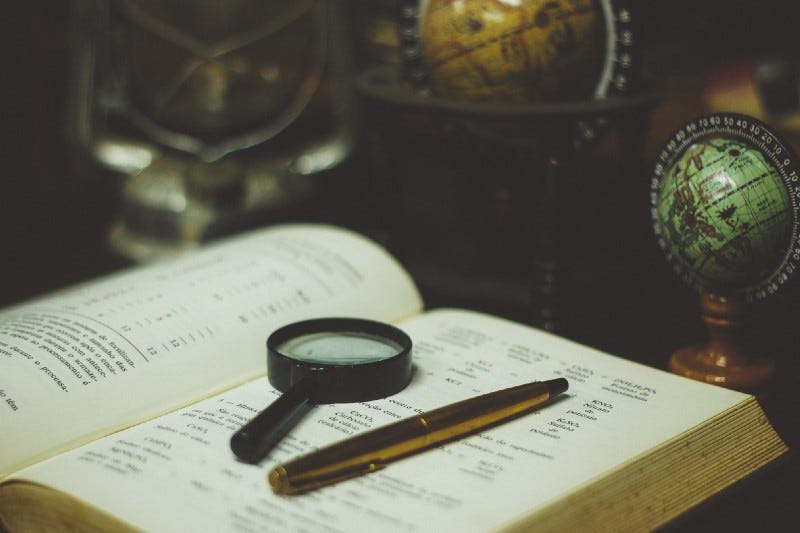The Story Writer’s Path
It’s a lot easier than it used to be but you still need to do it

I have one word of advice for you about researching for your novel.
Google.
Yeah, I know. Simplistic, but it’s true. You can find just about anything on the Google. Anything.
I’m old enough to remember pre-internet days.
Research was far more torturous. You actually had to leave your desk and go to, gasp, the library! And look through cute collections of cards with mysterious numbers notated on them. Then you’d follow those numbers as best you could back into the stacks only to find that….your book was checked out by somebody else.
Not only that, most of the reference books could not leave the building. So you had to sit there next to the preschoolers enjoying their story time. At least some of them were enjoying it. The rest were running around screeching.
So thank your lucky stars you don’t have to worry about that anymore.
And let me just say: Google is a wonderful, amazing tool. But even though it has eliminated much of the drudgery of research, it is not the only game in town. What you find on the internet may just skim the surface of your topic, and it may also be inaccurate.
Also, because it is so wonderful and amazing it can also be dangerous. You decide you absolutely need to know the name of a hotel in London you want to use as a setting and thirty minutes later you’re looking at island vacation homes. Where you will go to complete your novel. But still.
Remember:
Research is not writing.
So don’t let it overtake your writing time.
But, you truly do need some research to make your stories realistic. So have a look at the guidelines that follow.
How much you need varies
A science fiction story based on scientific ideas needs a lot more research than a romance. Same thing with a police procedural. There are many types of novels where you need to get the details right. (Sharp readers will let you know if you didn’t.) And, of course, if you’re writing historical fiction, you’re going to need a lot of research.
But just because you’re writing a romance set in a city you know well doesn’t mean you won’t need to do any research. While most writers put a little of ourselves into every character we write, our characters are not us. So there will still be bits and pieces you need to glean.
It may drive the story
You may have made assumptions about the way your world will work, only to learn it isn’t true. You may have a pivotal plot point set around the sighting of a certain kind of bird in your setting — only to discover it’s not part of that bird’s habitat. In that case, you’ll need to change the plot point to make it align with reality (unless bending reality is part or your story).
But such discoveries can often lead to richer, deeper plots — because you have to create a work around that makes the story so. It pays to do your research!
Go beyond Google
I like to use Google as a “need to know” tool. I’m writing along and I need to know how often it snows in a town I’m using as a setting. That’s a quick dip onto to the internet. (Don’t let it go longer!) And you can also, of course, find some wonderful, meaty information online.
But often a writer wants to go deeper. Maybe you need to know how that city reacts when it snows. Does everything flow smoothly? Or does the whole city shut down when one inch falls? That’s when you turn to books, whether non-fiction or fiction (reading novels counts as research).
Books give you the depth and breadth that articles simply don’t have room for, so don’t exclude them from your research.
Talk to people
And don’t forget talking to people. This is the best way to get the insider view of a specific profession, what it’s really like to live somewhere, how a certain business works.
People love to talk about themselves and share what they know. We don’t get asked about what we know often enough! So ask that neighbor of yours who is a cop how his job works, or talk to the owner of the coffee shop you frequent.
You can find a lot of people to interview by asking around among friends and family. But if need an expert on something very specific, try calling a local university. Also keep in mind that most large non-profits and businesses will have a public information person who can help you out.
Don’t let your research overtake your story
We’ve all read books where the author lovingly inserted every single fact she ever learned about her era. So much so that it totally overtakes the story. Use a light tough with all your gems. Remember to show, not tell (although this is not always possible).
Good luck with your research!



